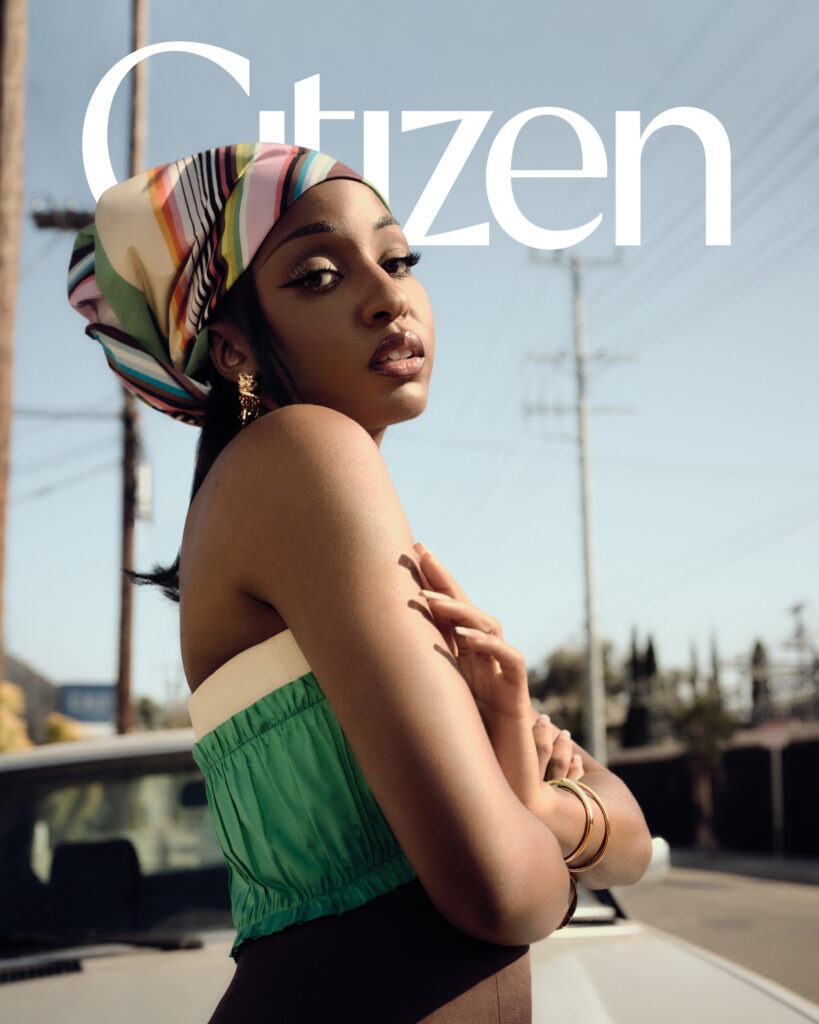Allyson Felix, The People’s Champ
Allyson Felix wants Black mothers to get what they deserve.
Photography by Andre D. Wagner
Introduction text by Nora Taylor
Issue 004
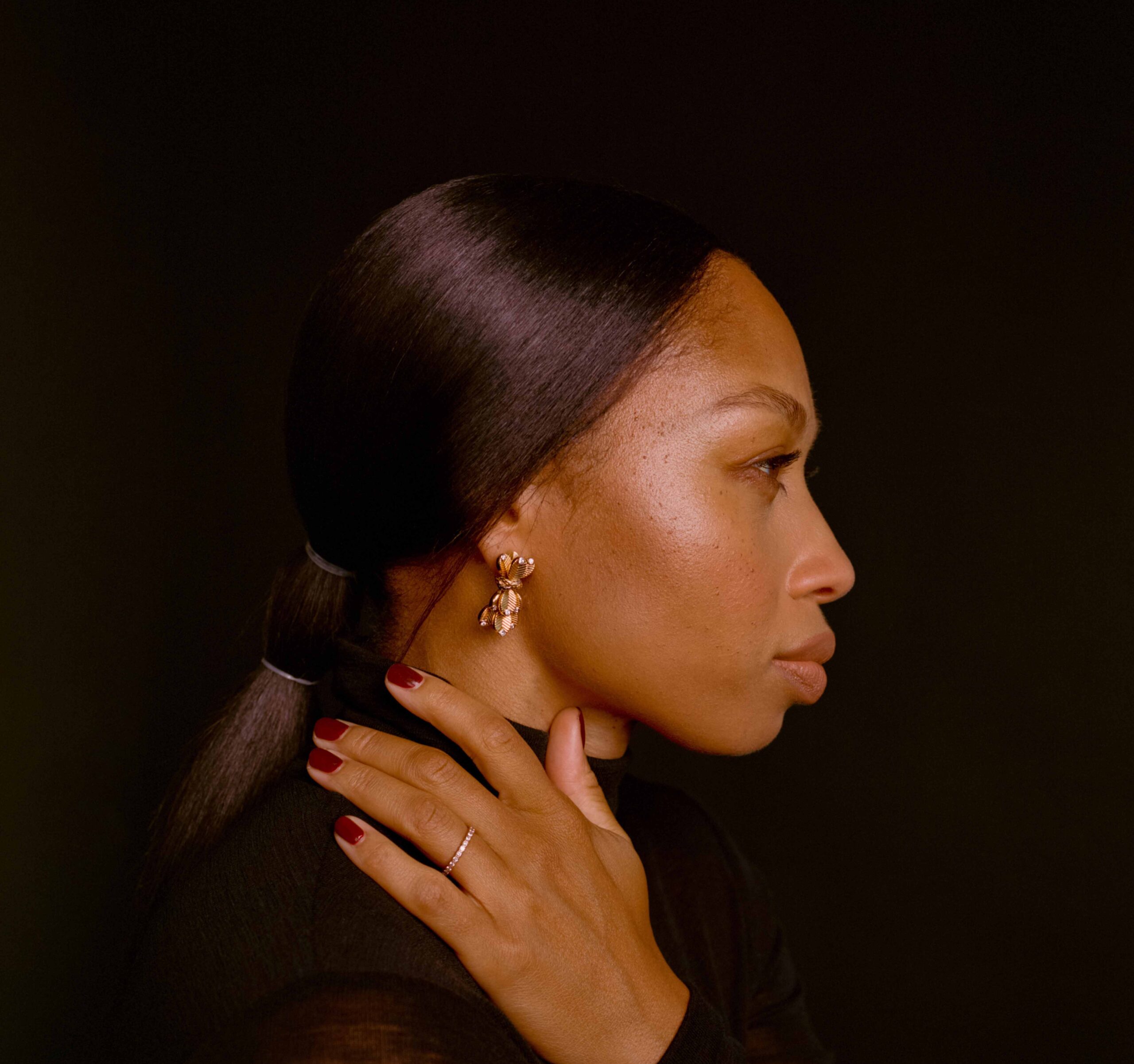
“Medical providers [need] to get training around implicit bias and just to hear women of color.”
Can a woman look fast? Not in the way southern grandmothers whisper about fast girls who they deem “acting too old for their age”, but physically fast, very, very fast. If you saw Allyson Felix standing on the corner, would you know she spent nearly two decades as a professional track and field athlete competing in the 100 meters, 200 meters, and 400 meters–winning in the 100 meters, 200 meters, and 400 meters? If she was sitting at the table across from you at a restaurant, would you be able to imagine that she is the most decorated American track and field athlete of all time? You might expect her to be tightly coiled like a spring, tense and hard, or hinting at a well of energy with a tapping of a foot or some other hint at an unsettled restlessness. But Allyson Felix is a calming presence.
Her face is open and honest, ready to receive and share. This is how she appears to me, sitting across a table in a stolen corner of a busy room. We are sitting in a white-walled, high-ceilinged room in Chelsea, a chic neighborhood in New York, at a space where stressed-out professionals can come and re-center themselves for amounts of money that, in other parts of the country, would feed a family of four. A set of parents are gathering all of the toys, bags and headbands their (very cute) two-year-old daughter has spread across the space. A bartender cleans up the breakfast spread as a few folks filter out of the room, chatting and reviewing notes from their interviews with Allyson. She’s sitting next to me on a bench, all calm and relaxed, with a warm smile across her face when minutes ago she was before a crowd in that same open position. Allyson is in New York for an event with The Lactation Network, a Chicago-based network for lactation or breastfeeding services that she has recently partnered with. At the event, Allyson sat cross-legged on a stool placed at the front of the room, one within a single row of three, as an audience of about 20 women looked on. She was there to discuss both the importance of breastfeeding and her personal experiences with it.
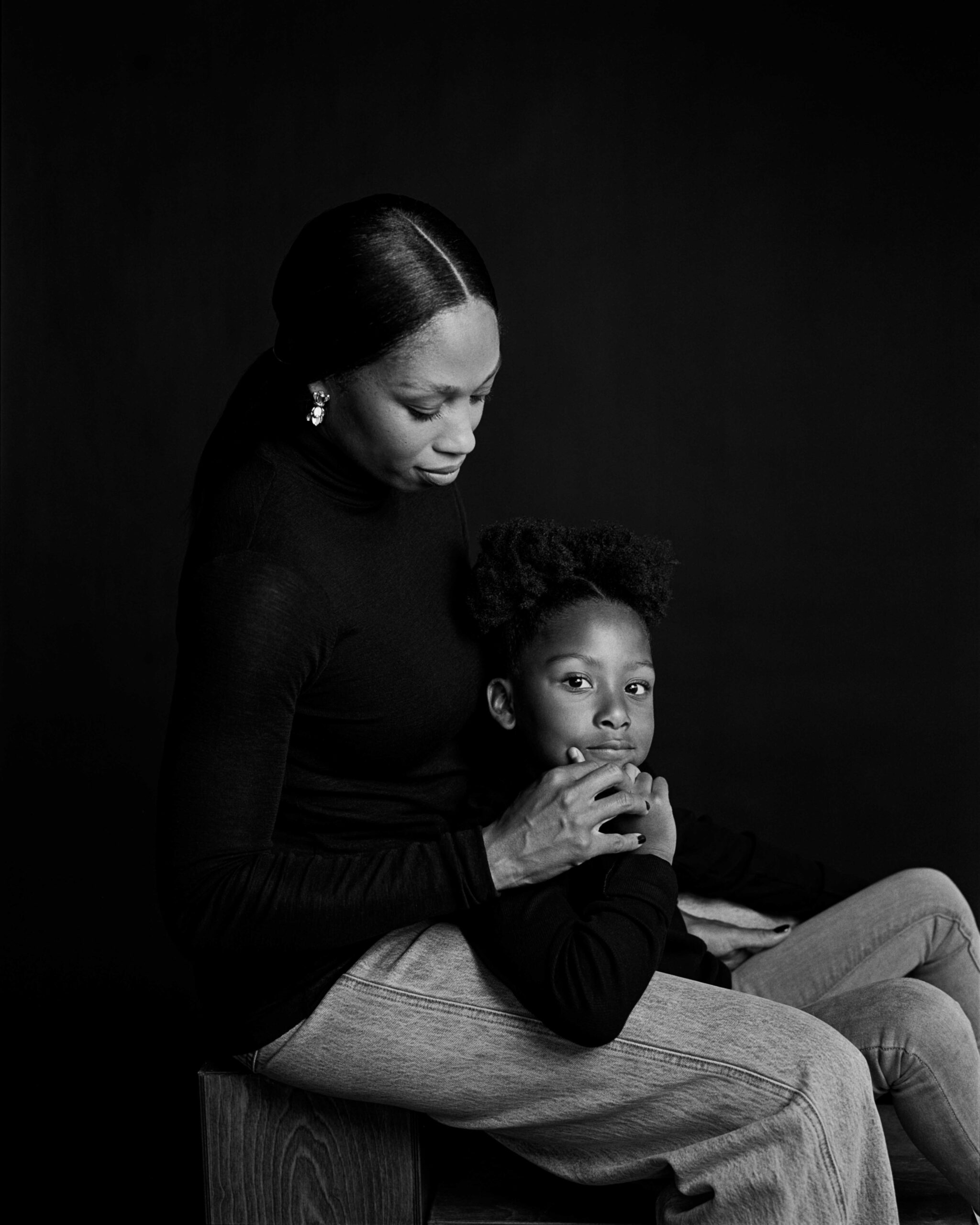
“Black women are three times more likely to die from a pregnancy-related cause than White women–an alarming disparity that can not be explained away by income, marital status, or age.”
This is a common scene for Allyson, who has, since retiring from track and field, become an advocate and activist for mothers and women. If that sounds broad, that is because it is. She has managed to be instrumental in pushing forward conversations and, therefore, actions concerning Black maternal healthcare, maternal rights for athletes, and access to childcare for athletes competing while also raising children. She’s also the co-founder of Saysh, an athletic shoe brand designed specifically for a woman’s foot. She has sat on panels, been a part of various initiatives, and found herself standing behind rather than on top of podiums many times over the last five years.
The morning we meet is but one morning in a collection of many mornings that she finds herself before an audience discussing some aspect of motherhood. She is pointedly set on discussing what has not been discussed openly. Allyson is tackling the dual issues of systemic failure–failures in maternal healthcare outcomes and failures to support those who are both mothers and athletes. “We’re making stride, and we’re making steps, and there is such a long way to go,” she said on the panel when asked about the issues facing Black and brown mothers. “Medical providers [need] to get training around implicit bias and just to hear women of color.” By being so vocal about her experiences, she is expanding the conversation about birth and motherhood. There’s a cultural narrative around the pain of birth, to the point that a mother screaming and yelling at her partner during childbirth has become a comedic bit, but the physical and emotional hardships–and how they’re different for every mother–remain siloed into conversations between close friends. Allyson is shining a light on the beauty, fear, pain, and struggle that goes into birth.
In 2018, when Allyson was pregnant with her first child, Camryn, affectionately called Cammy, she had an emergency C-section after being diagnosed with preeclampsia. “There’s the side of being a Black woman and being at risk. That was not a conversation that I had beforehand. I had heard of preeclampsia but didn’t know what it meant. I never had those conversations like with girlfriends or my doctor; it was not like, ‘Okay, you’re at risk, and this is what you should look for.’”
Allyson was healthy (feels almost like an understatement when talking about the most decorated track and field athlete in history) at the time of Cammy’s birth and had never been in a situation where she had to challenge a doctor. As an athlete, she was familiar with the way her body worked and who she worked with to fix it when it didn’t. So, when she dealt with a medical emergency as profound and scary as the one she did, it not only changed her perspective on healthcare but on her physical self. “I felt this sense of my body betraying me because I do think I took my health for granted for so long just because I work with my body, and my body has always shown up for me.”
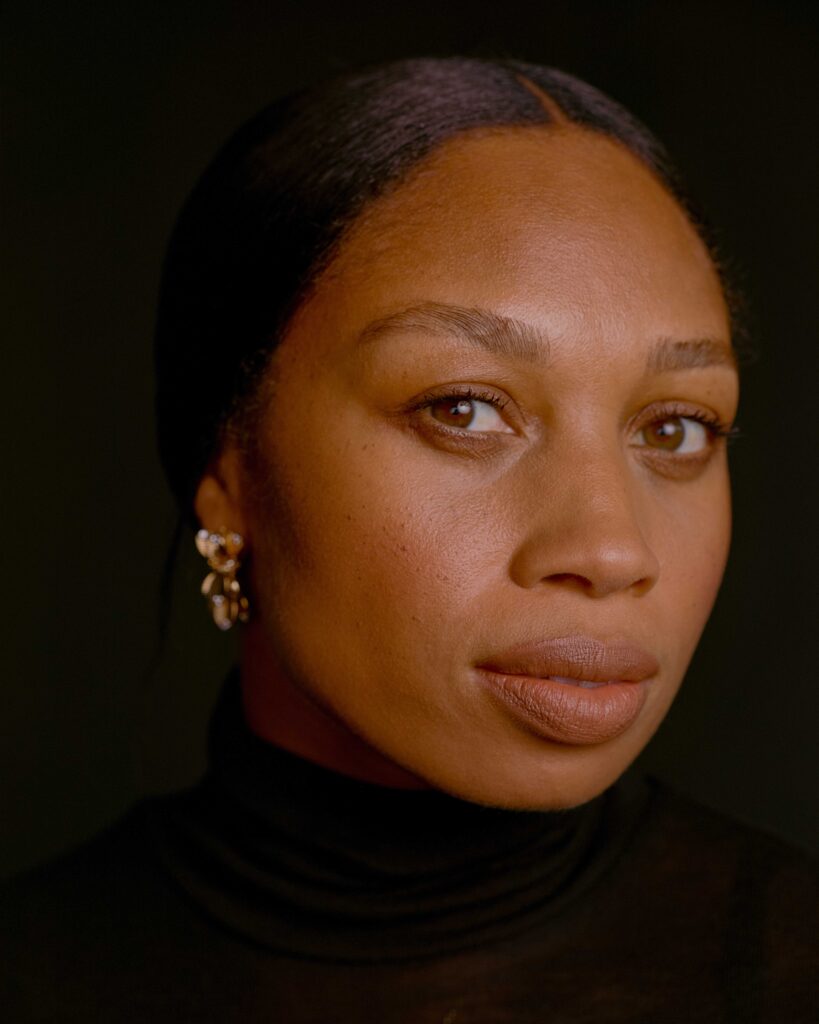
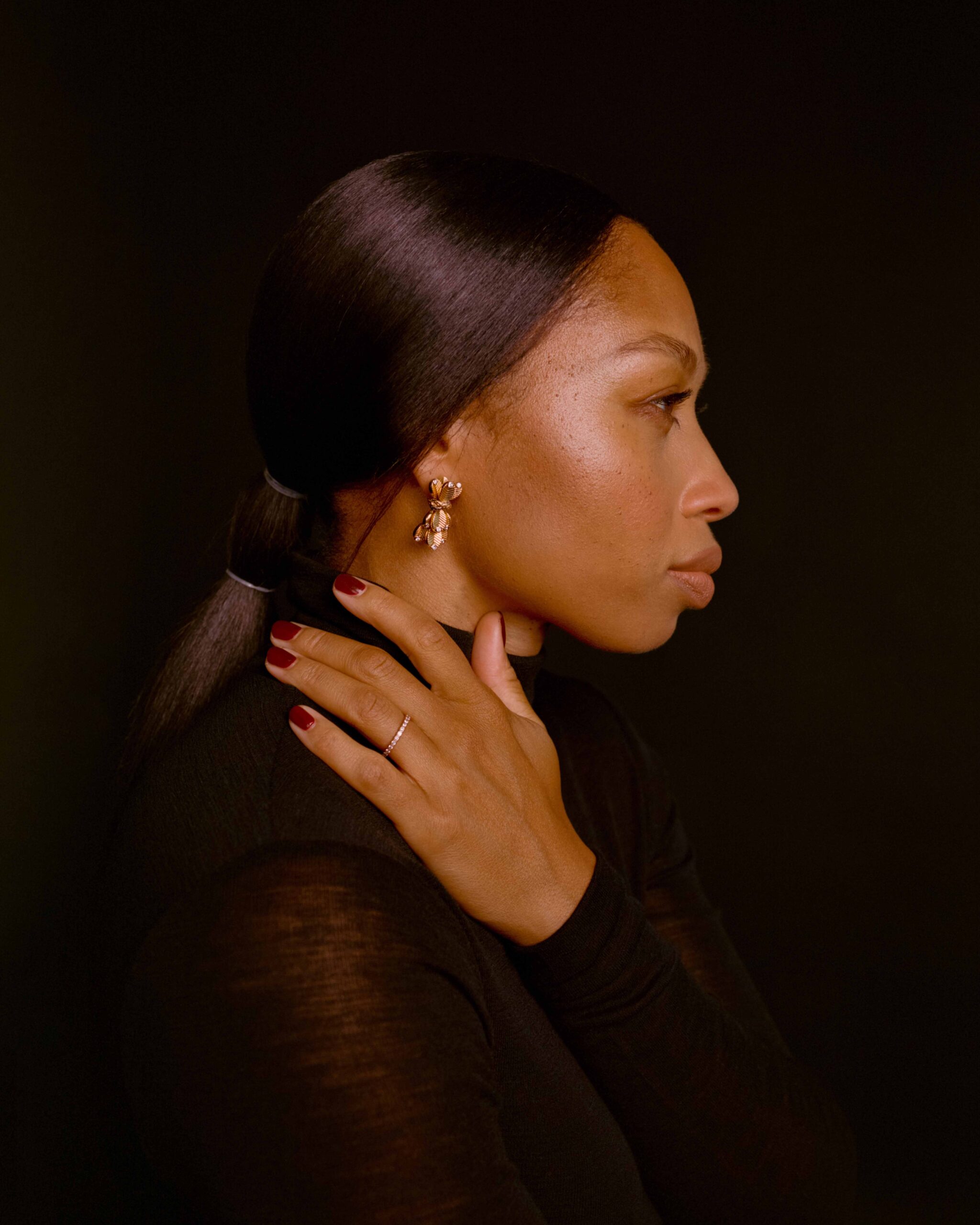
No one would have blamed Allyson for not having a second child after her experience giving birth to Cammy. The experience may have galvanized her activism, but she didn’t let it change her personal plans to have a second child. Armed with an understanding of the distance between what many people perceive or fail to perceive about childbirth and the reality of it, Allyson approached her second pregnancy and birthing experience more ready to plan and advocate for her needs. “I knew I wanted a doula. I had done IVF, and our IVF nurse was also a doula. And so she had been on this journey with us and all the ups and downs and everything,” she shares. “And she is a Black woman, and I just felt like she saw me. She saw how much I wanted this pregnancy. She made me feel safe and comfortable.” Allyson’s son Trey was born in April of this year. She announced his birth on Instagram with a caption that read in part, “After the traumatic and life-threatening delivery I had with Cammy due to severe preeclampsia, the most important thing I wanted from this birth was for my son and I to survive. I’m so grateful to God that we did!”
Allyson’s concern with surviving childbirth is not her being alarmist or overly dramatic. Indeed, according to the Centers for Disease Control, Black women are three times more likely to die from a pregnancy-related cause than White women–an alarming disparity that can not be explained away by income, marital status, or age. In 2023, the National Bureau of Economic Research published a groundbreaking study that found that maternal mortality rates were just as high among the highest-income Black women as among low-income white women. Infant mortality rates between the two groups were also similar. This strange statistic is unfortunately demonstrated in the fact that in September of 2017, a year before, Allyson, the most decorated track and field athlete in history, gave premature birth to her child due to preeclampsia, Serena Williams, one of the most decorated tennis players in history and then the world’s highest-paid female athlete, experienced a pulmonary embolism–a life-threatening complication–shortly after giving birth to her first child, Olympia. “I almost died after giving birth to my daughter,” Serena explained in an essay she wrote for CNN in 2018.
In Allyson Felix’s work to address a disparity that is more disparate than most, much of Allyson’s advocacy work focuses on Black mothers. Earlier this year, Allyson received a $20 dollars grant from Melinda French Gates’ Pivotal to be dispersed to organizations of her choosing. Then, ahead of the 2024 Summer Olympics, it was announced that Allyson was working to bring the first nursery to the Olympic Village through her partnership with Pampers. Felix began her partnership with the brand in 2022 when she partnered with Pampers to raise awareness and money to combat the Black maternal health care crisis. Though Allyson’s work is grounded in creating safer and kinder pregnancies and birth experiences, as is often the case, when things get better for Black mothers, they get better for all mothers.
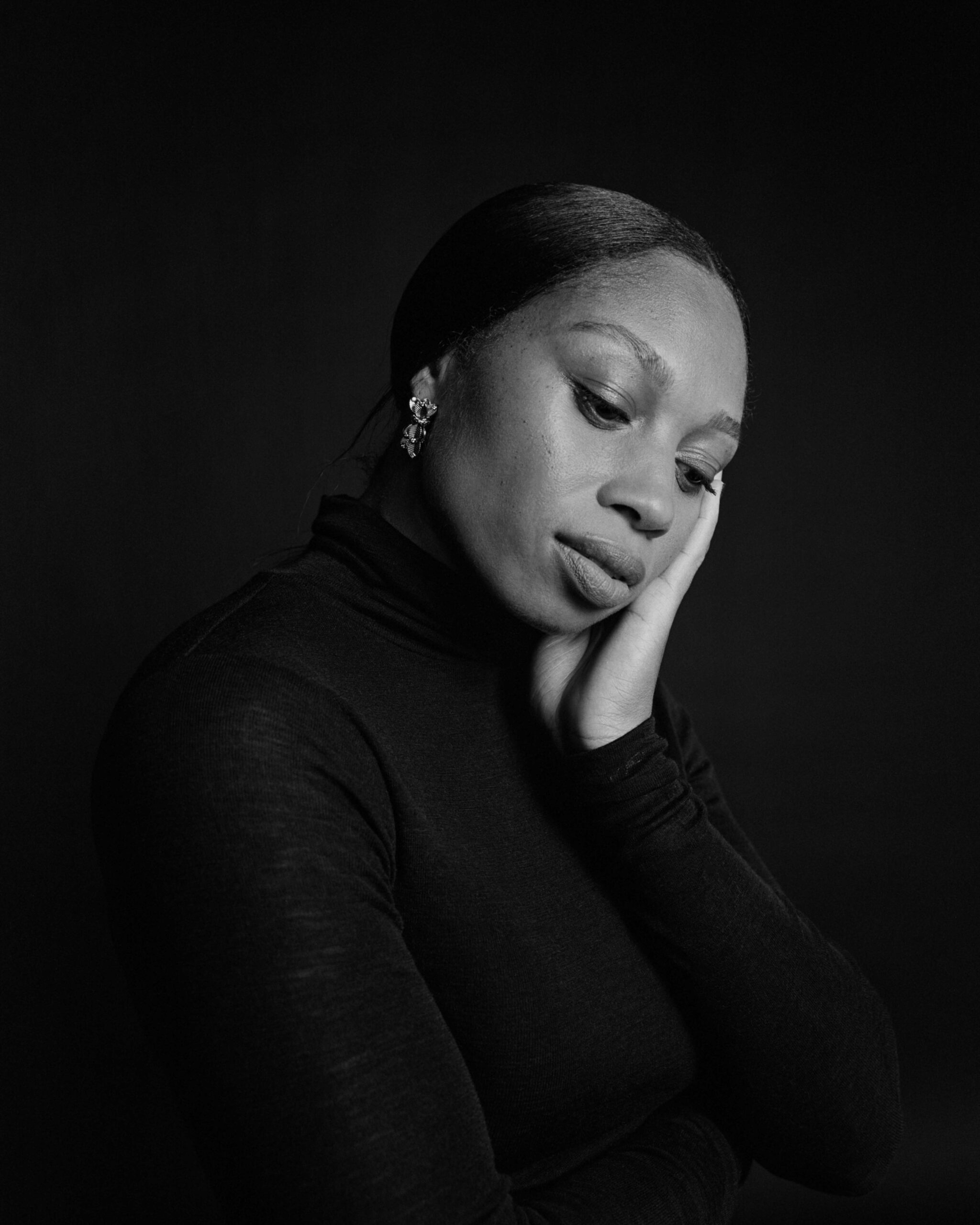
“We’re making stride, and we’re making steps, and there is such a long way to go.”
When I asked Allyson about doing the work and the ‘Black women will save us effect’ (even name-checking Kamala a few weeks before she announced her candidacy where even if she does not save the Democratic Party, she has at least reinvigorated it) and if she ever feels tired of it, she was honest. “I think it feels draining; why do we always have to be the savior? I don’t want to be strong all the time,” she shares. “I think back to the women in my family. I feel like that’s where my strength comes from, but it’s always been like that. It’s always the grandmother or the auntie. That’s our heritage.”
It’s easy to look at Allyson now, the CEO of a successful shoe company, a woman with a million-and-one partnerships, and forget what was at stake for her when she first began this journey of advocacy, the two-tiered nature of her work and a time when maternal support for athletes was not a common topic of discussion within the sports industry. From a distance, the David and Goliath story of Allyson versus her then-sponsor, Nike, feels almost like a made-for-TV movie. However, for Felix and her family, the potential consequences could have been very real. “I remember being at home in my daughter’s nursery and just making the decision that if it all goes away, I believe I need to do this.”
In 2019, Allyson penned an Op-Ed for the New York Times, calling out the company for its lack of pregnancy protection. The piece itself is worth reading, but what is perhaps most remarkable is the update that now sits at the top of the digital story:
“Following this report, after broad public outcry and a congressional inquiry, Nike announced a new maternity policy for all sponsored athletes on Aug. 12. The new contract guarantees an athlete’s pay and bonuses for 18 months around pregnancy. Three other athletic apparel companies added maternity protections for sponsored athletes.”
“It comes back to the way I was raised. I’ve watched my parents have an impact on lives since day one. And I feel like I’m a doer. I like solutions.”
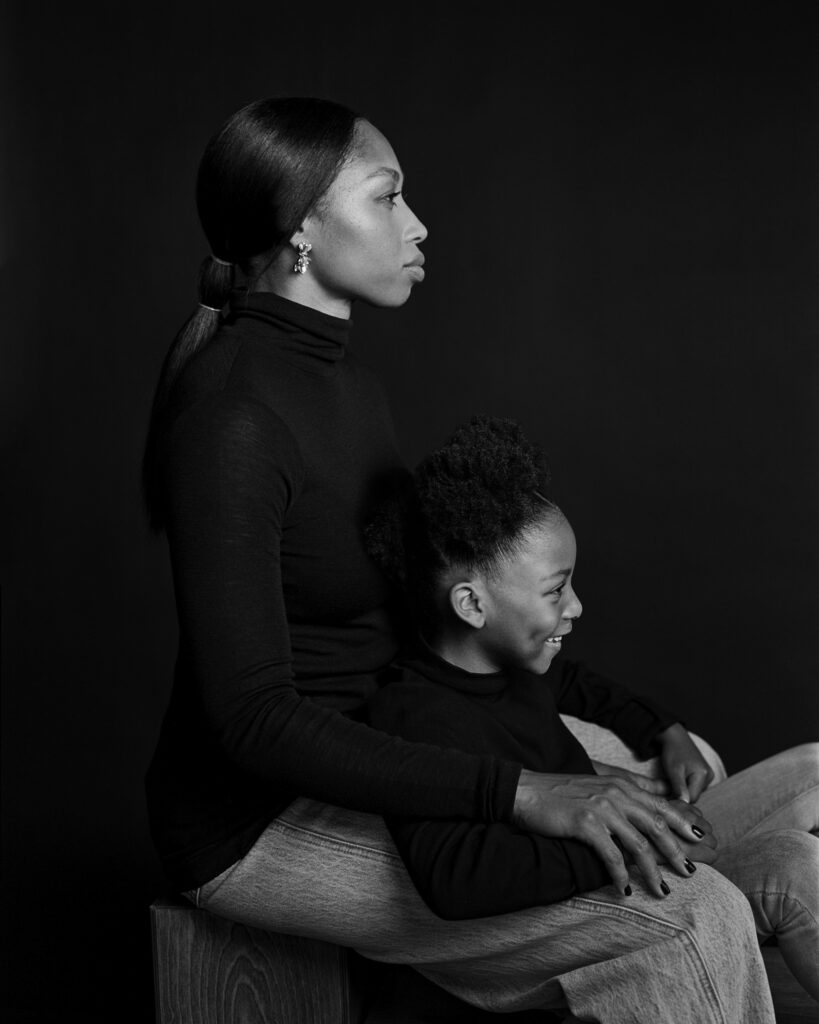
Allyson spoke out, and the brand listened. In 2019, Nike’s women’s apparel represented less than 25 percent of the company’s total sales. That same year, Nike declared it to be the “Year for Women.” A little over a year after Allyson first wrote her Op-Ed, the brand launched a maternity line, Nike M. In December 2023, Nike’s then President and CEO John Donahoe noted the brand’s women’s business had “grown high single digits on average over the past three years,” or since 2020—all indications that Allyson’s advocacy–her holding the brand accountable for its treatment of women and the ensuing brand-wide corrective that extended beyond athletic contracts–or the zeitgeist, or general societal movements, or all of these things together, led to changes at the corporation that were not only good for women, but also good for business.
In the wake of it all, I ask Allyson where her dedication comes from–both the drive to become an Olympic athlete and the will to be someone who advocates for others. “It comes back to the way I was raised. I’ve watched my parents have an impact on lives since day one,” she says of her mother, a teacher, and her father, a pastor. “And I feel like I’m a doer. I like solutions. And to me, some of this stuff is not rocket science. You know, it just feels like, come on, guys, we need to do better.”
I can’t imagine what it must be like to give something up when you are as good at it as Allyson was at track. I miss singing, and I’m just okay; she was, is, one of the best in the world. “I miss competing. I miss the thrill of the competition. I miss the travel for competition, the lifestyle. I did it for 20 years, and that is what I know. And with the Olympics rolling around, I feel, oh, I should be doing something.” For Allyson, learning to live without competition is work. She says she focuses now on gratitude for having experienced it, but also on where she is now, the things she gets to experience.
It is also now something she gets to share with her daughter. Her last Olympic games felt particularly special, as they were her first time competing as a mom, as a person who had come back from a difficult pregnancy. She recalls that before the race began, she thought that it was “such a gift” to be there. Now, she’s taking Cammy to the games, which will be her first time experiencing them as a spectator, albeit a very busy one, as she has the Pampers nursery and is serving as a representative on the IOC Athlete’s Commission.
I ask her if Cammy is at all affected by her fame, her notoriety. Aside from the question, “Why do people want to take pictures with you?” – brutal in the way only young children can be – Cammy seems to understand that Allyson runs track. She is excited to see gymnastics, and Allyson is excited to share that with her. “She’s very excited to go to the Olympics, but at the end of the day, none of that stuff really matters. It’s like, ‘Mom, when are you making my lunch?’”

